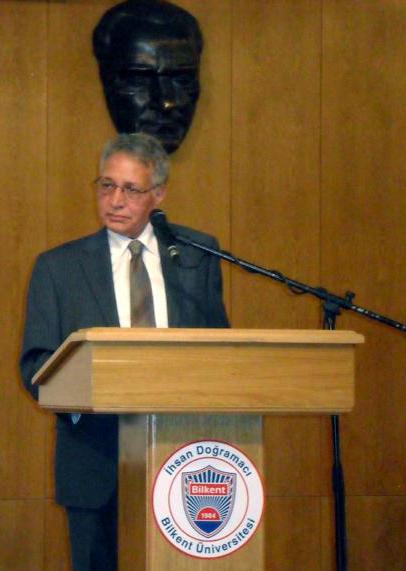Persian and Ottoman Literature as "Ancient Companions"
On October 9, the Department of Turkish Literature hosted a talk titled "Ancient Companions Along Parallel Pathways: Persian and Ottoman Literature in a Historical Perspective" by Ahmad Karimi-Hakkak, professor of Persian language and literature and Iranian culture and civilization. Prof. Karimi-Hakkak, who was on the faculty at the University of Washington for a number of years, currently teaches at the University of Maryland and is the founding director of the Roshan Center of Persian Studies there. Having developed an interest in the interaction between Ottoman and Persian literature, in his talk he shared his views on how literary history can gain new insights through the study of neighboring cultures. The presentation focused primarily on the issue of imitation in literary history, with Prof. Karimi-Hakkak discussing the conception of the Ottoman ghazal as a mere imitation of Persian examples. Emphasizing the spread of the genre throughout an extended geography, he also noted the need to study changes in the genre itself, alongside the historical context. Drawing attention to the way in which Turkish literary historians have benefited from the study of folk literature, he concluded his talk by expressing his aspiration that scholars of Persian literature might adopt a similar approach. The talk was followed by a question and answer session, in which Bilkent students and faculty members asked Prof. Karimi-Hakkak about his views on topics including imitiation and the tradition of the mesnevi.
